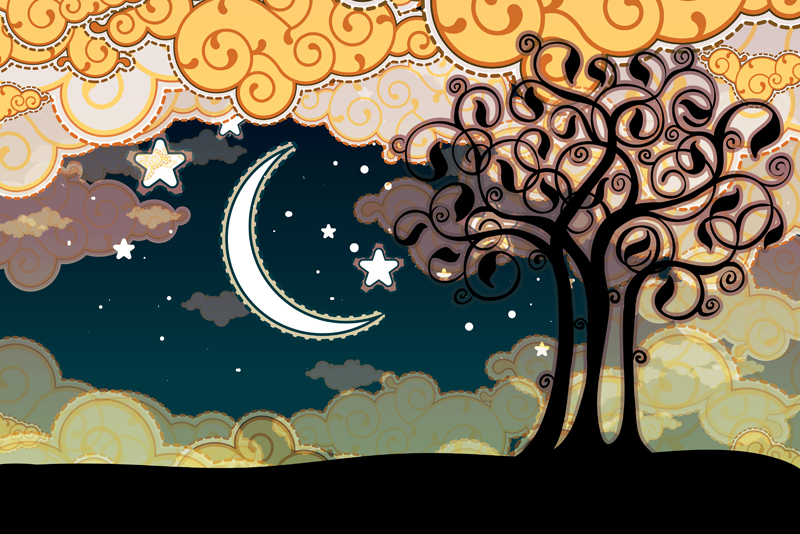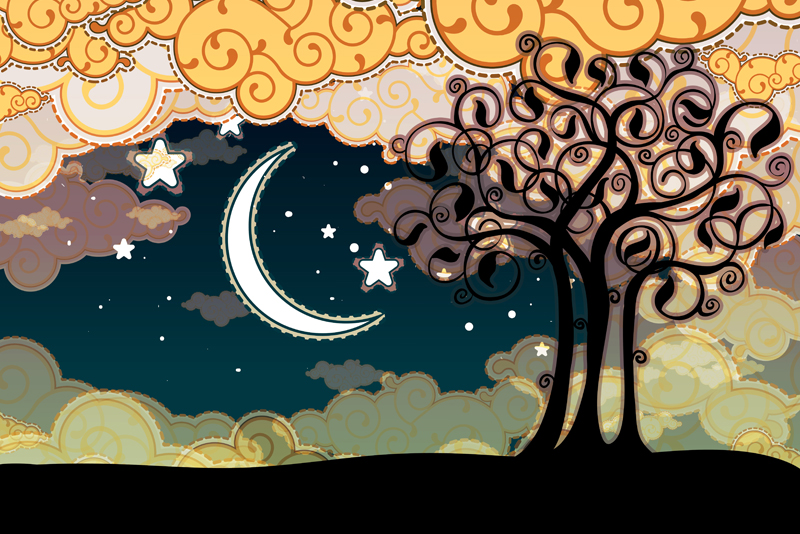Magick and Mental Health - Complexes

When people set out on a Pagan path their mental health may be the last thing on their mind. However, it should be, because magick and ritual can cause massive changes in personal biochemistry and ways of thinking which in turn affect perception and behaviour. In a responsible group or coven a lot of the early training is concentrated on balancing the mind through meditation and self-development. When I was a visiting Pagan Chaplain in local prisons one of the first things I did, with any inmates who wished to learn about the Pagan path and magickal arts, was to spend a lot of time using Tarot and traditional counselling to understand their motives. This process also helped them gain insight into the character aspects that lead them to become criminals in the first place. Doing this helped build sound foundations for practicing magick in the safest possible manner and also aided in their rehabilitation.
Unfortunately, this procedure seems to be increasingly rare with the rise of people forming their own covens after reading a few books on Wicca and Ritual Magic. Usually this kind of group lasts an average of six months before it collapse under the weight of egos. Which is a good thing, because without the participants working on their self-development, personal issues and group dynamics can lead to some people temporarily or permanently losing connection with shared reality. Shared Reality is better known as “Everyday” reality which is formed out of the consensus of everyone participating in it irrespective of what spiritual or philosophical path they follow.
In earlier times the magical path was synonymous with the perfecting of the self in order to approach the Divine or Deities, and was as much a psychological path as it was a way to power. The idea of “Know Thyself” from the Elysian mystery school of Classical Greece was the basis of most formal ritual magick work. Folk magick was concerned more with fertility, hunting, healing, and foreseeing the future. In both systems the participants were generally more focussed on developing their skills and working with or towards the Divine however or whoever they conceived it to be.
Fast forward to the 21st Century and magick is seen more as what you can do, rather than how integrated your personality is, or how good a person you are. By losing the self-perfection aspect of the training it becomes increasingly easy to delude yourself as to what results you are attaining with magic, and if you are really contacting the divine or if it is just wish fulfilment on your part. I have also noticed a trend of suppressing the so-called “darker” aspects of the psyche and the real world and pretending all is love and light rather than accepting and integrating or dealing with them. Unfortunately suppressing or ignoring these aspects doesn’t make them go away. In the case of negative personality traits they grow stronger and begin to leak into everyday behaviour.
As mentioned earlier this becomes even more obvious in high-pressure group situations especially covens. The techniques of ritual, be it a rite or a ceremonial celebration, tend to bypass the conscious censor of the mind making people very sensitive to the attitudes of others. It also exposes parts of the mind that psychology and psychiatry term “complexes”, which are subconscious emotions, wishes, and perceptions organised around a central theme that frequently appears to have a mind of its’ own. Over the years I’ve seen this happen often, particularly with neophytes who come from a troubled background and have started to have consistent success with spells and divination. I term it “The Mask Effect” partly because this reaction masks the real cause, but mainly because it presents so much like the hero’s reaction in the film “The Mask” when he discovers the power of Loki’s mask.
“With these Powers I could be a SUPERHERO!” He declaims, and in the next breath “But first – a little payback” and goes off to revenge himself on the mechanics who cheated him earlier that day. The same thing happens with the magick user, only they frequently start binding – and in some cases cursing- a real or imagined cause of their psychological pain. In traditional magickal groups the person might not have made it through the door or, if they had, they would have spent a lot of time in self development before being introduced to any practical work. However, today the skills and techniques that people should learn in graduated stages according to their development are now available at the local bookshop or with a little research on the internet.
Commonly, complexes control the person to the extent that they lose all sense of reality and perspective, and project their fears and onto those around them. Someone caught up in a complex becomes more emotional than the situation seems to warrant. They project their own fears and emotions onto those around them, and treat them like a character in a play and not like the person they are. Needless to say this can cause lasting damage to vulnerable people who do not know what is happening, and whose judgement has been bypassed by the role they are playing in the group.
The only real defence against this is to be centred yourself, and have at least two people who are integrated personalities and preferably essential in running the group. If all the people there are new, or have no commitment to personal growth as well as developing magical skills and a closer connection with the Divine. For the sake of psychological and emotional safety either work as a Solitary practitioner until you can find such a group, or insist that psychological safety precautions are in place, such as independent counselling or other psychological support outside the group.
Unfortunately, this procedure seems to be increasingly rare with the rise of people forming their own covens after reading a few books on Wicca and Ritual Magic. Usually this kind of group lasts an average of six months before it collapse under the weight of egos. Which is a good thing, because without the participants working on their self-development, personal issues and group dynamics can lead to some people temporarily or permanently losing connection with shared reality. Shared Reality is better known as “Everyday” reality which is formed out of the consensus of everyone participating in it irrespective of what spiritual or philosophical path they follow.
In earlier times the magical path was synonymous with the perfecting of the self in order to approach the Divine or Deities, and was as much a psychological path as it was a way to power. The idea of “Know Thyself” from the Elysian mystery school of Classical Greece was the basis of most formal ritual magick work. Folk magick was concerned more with fertility, hunting, healing, and foreseeing the future. In both systems the participants were generally more focussed on developing their skills and working with or towards the Divine however or whoever they conceived it to be.
Fast forward to the 21st Century and magick is seen more as what you can do, rather than how integrated your personality is, or how good a person you are. By losing the self-perfection aspect of the training it becomes increasingly easy to delude yourself as to what results you are attaining with magic, and if you are really contacting the divine or if it is just wish fulfilment on your part. I have also noticed a trend of suppressing the so-called “darker” aspects of the psyche and the real world and pretending all is love and light rather than accepting and integrating or dealing with them. Unfortunately suppressing or ignoring these aspects doesn’t make them go away. In the case of negative personality traits they grow stronger and begin to leak into everyday behaviour.
As mentioned earlier this becomes even more obvious in high-pressure group situations especially covens. The techniques of ritual, be it a rite or a ceremonial celebration, tend to bypass the conscious censor of the mind making people very sensitive to the attitudes of others. It also exposes parts of the mind that psychology and psychiatry term “complexes”, which are subconscious emotions, wishes, and perceptions organised around a central theme that frequently appears to have a mind of its’ own. Over the years I’ve seen this happen often, particularly with neophytes who come from a troubled background and have started to have consistent success with spells and divination. I term it “The Mask Effect” partly because this reaction masks the real cause, but mainly because it presents so much like the hero’s reaction in the film “The Mask” when he discovers the power of Loki’s mask.
“With these Powers I could be a SUPERHERO!” He declaims, and in the next breath “But first – a little payback” and goes off to revenge himself on the mechanics who cheated him earlier that day. The same thing happens with the magick user, only they frequently start binding – and in some cases cursing- a real or imagined cause of their psychological pain. In traditional magickal groups the person might not have made it through the door or, if they had, they would have spent a lot of time in self development before being introduced to any practical work. However, today the skills and techniques that people should learn in graduated stages according to their development are now available at the local bookshop or with a little research on the internet.
Commonly, complexes control the person to the extent that they lose all sense of reality and perspective, and project their fears and onto those around them. Someone caught up in a complex becomes more emotional than the situation seems to warrant. They project their own fears and emotions onto those around them, and treat them like a character in a play and not like the person they are. Needless to say this can cause lasting damage to vulnerable people who do not know what is happening, and whose judgement has been bypassed by the role they are playing in the group.
The only real defence against this is to be centred yourself, and have at least two people who are integrated personalities and preferably essential in running the group. If all the people there are new, or have no commitment to personal growth as well as developing magical skills and a closer connection with the Divine. For the sake of psychological and emotional safety either work as a Solitary practitioner until you can find such a group, or insist that psychological safety precautions are in place, such as independent counselling or other psychological support outside the group.
You Should Also Read:
Bellaonline Mental Health Site
Science, Pagnism, and Magick

Related Articles
Editor's Picks Articles
Top Ten Articles
Previous Features
Site Map
Content copyright © 2023 by Ian Edwards. All rights reserved.
This content was written by Ian Edwards. If you wish to use this content in any manner, you need written permission. Contact Ian Edwards for details.



